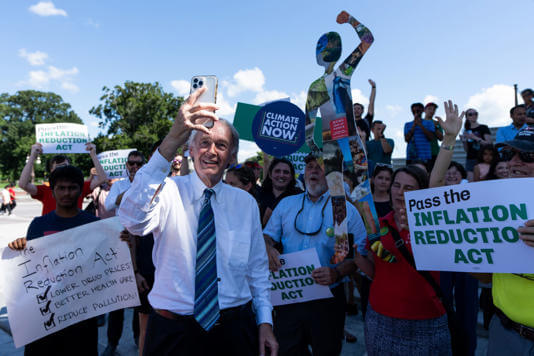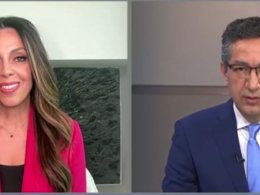1. Increases Inflation
According to economic experts familiar with the Inflation Reduction Act, the bill allows for new spending in the American economy, which was why inflation occurred in the first place. Economists say while the bill has "inflation reduction" in the title, the policies are unlikely to put a lid on rising prices in the future, creating fluctuations in energy, food, and housing prices. One of the tax credits in the law includes a $7,500 credit for the purchase of an electric vehicle with a price tag of up to $80,000 for taxpayers earning up to $300,000 per year, squeezing an already strained supply chain, raising car prices further, and making inflation worse. Experts point out that should the bill become official law, the winners will include wealthy electric vehicle owners and manufacturers and the losers will include everyone else in America who is paying higher prices and higher taxes to pay for the bill. Defenders of the bill ranging from Democratic lawmakers in the House and Senate and the President argue that the law will reduce inflation and help middle and lower-income Americans.
2. Focus on Climate Change
According to reports, the climate provisions in the bill are pulled straight from the failed Green New Deal proposed by progressive lawmakers in Congress, resulting in $369 billion on so-called climate measures. Under the new law, around $27 billion would go to a green bank, providing more incentives for clean energy technology. Some economists point out that the incentives offered to wealthy individuals to purchase an electric vehicle with a price tag of approximately $80,000 will stand to gain the most from this bill, making ordinary Americans cover the costs. Regarding the issue of oil and gas production, the bill requires that the Interior Department hold a least three more offshore oil and gas lease sales by next October. Under the Biden administration and Democratic Congress, oil companies have been unable to drill because of the loss of drilling permits from the federal government.
3. More Taxes
One critical aspect of the bill that many lawmakers and economists have noticed from the President's proposal is increased taxes. As the United States economy continues to experience slow economic growth, rapid inflation, and energy shortages, many economists argue that raising or adding new taxes is the opposite of what policymakers should do during a recession. One of the taxes, according to the bill's text, includes a book minimum tax designed to raise taxes on companies by wiping out the effect of depreciation, research and development, and other tax credits for companies, passing on to consumers in the form of higher prices, inflation, and lower wages and stock returns. Economists also argue that this new tax would not "close loopholes" as proponents claim and continue to affect all Americans in every tax bracket. The measure also includes a one percent excise tax on corporate repurchases poised to take effect in 2023, hoping to slow companies' tendencies to buy back their stock from investors.
4. Increase in IRS Power
According to the Wall Street Journal, the new bill grants the IRS $80 billion for increased enforcement, operational improvements, customer service, and systems modernization. Republican Senators on the Senate Finance Committee argue a huge portion raised from the IRS funding bloat would come from taxpayers with incomes below $400,000, going against the claim that the new law allows the IRS to go after millionaires, billionaires, and tax evaders. Around $5.6 billion will be for the enforcement, allowing the government agency to grow bigger, stronger, and faster at collecting while ramping up its police power. Lawmakers note that the IRS will be able to hire 87,000 new agents with $80 billion in taxpayer dollars, allowing the agency to audit lower to middle-income Americans and small businesses. Lawmakers in the House and Senate also fear that given the new powers granted to the IRS through this bill, ordinary business owners and workers will not have the resources to fight the government in tax court.
5. Exacerbation of Current Economic Conditions
For many Americans familiar with knowledge of basic economics, the idea of increasing spending during inflation and tax increases during a recession exacerbates current economic conditions and leads to a recession. Since taking office in 2020, the Biden administration has enacted progressive policies on energy issues, business regulations, and increased taxation on ordinary Americans, resulting in higher inflation and an economic recession. According to experts, the Inflation Reduction Act will exacerbate inflation and the current economic downturn leading to higher prices of food, energy, housing, and other things even as the nation faces a supply-chain crisis and a labor shortage. Some of the provisions in the bill will pass on the cost of the book minimum tax or a new tax on natural gas, raising prices and inflation for consumers. The bill also includes a drug pricing component that allows Medicare to slash the prices it pays for prescription drugs, preventing seniors from accessing new prescription drugs and preventing future pharmaceutical research.










